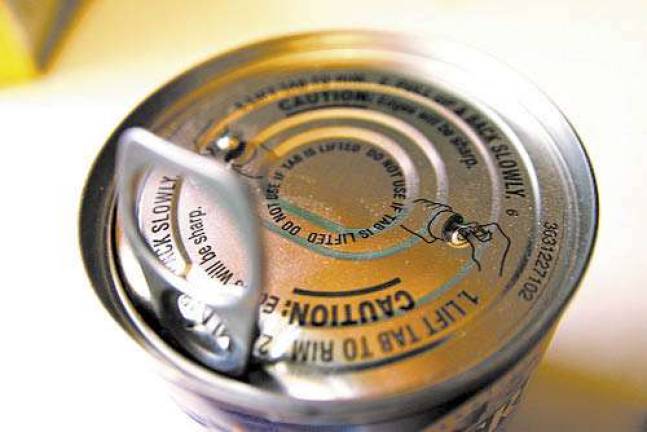Canned soup linked to higher BPA levels



Found in the can's lining, BPA is associated with adverse health effects
A new study from researchers at the Harvard School of Public Health has found that a group of volunteers who consumed a serving of canned soup each day for five consecutive days had a more than 1,000 percent increase in urinary bisphenol A (BPA) concentrations compared with the same individuals who then consumed fresh soup daily for five days. The findings were published in the Journal of the American Medical Association (JAMA).
"Previous studies have linked elevated BPA levels with adverse health effects," said Jenny Carwile, a doctoral student in the Department of Epidemiology at the Harvard School of Public Health and lead author of the study. "The next step was to figure out how people are getting exposed to BPA. We've known for a while that drinking beverages that have been stored in certain hard plastics can increase the amount of BPA in your body. This study suggests that canned foods may be an even greater concern, especially given their wide use."
Exposure to the endocrine-disrupting chemical BPA, used in the lining of metal food and beverage cans, has been shown to interfere with reproductive development in animals and has been linked with cardiovascular disease, diabetes, and obesity in humans. In addition to the lining of food and beverage cans, BPA is also found in polycarbonate bottles (identified by the recycling number 7) and dentistry composites and sealants.
The researchers note that the elevation in urinary BPA concentrations may be temporary and that further research is needed to quantify its duration.
"It may be advisable for manufacturers to consider eliminating BPA from can linings," said Karin Michels, senior author of the study.